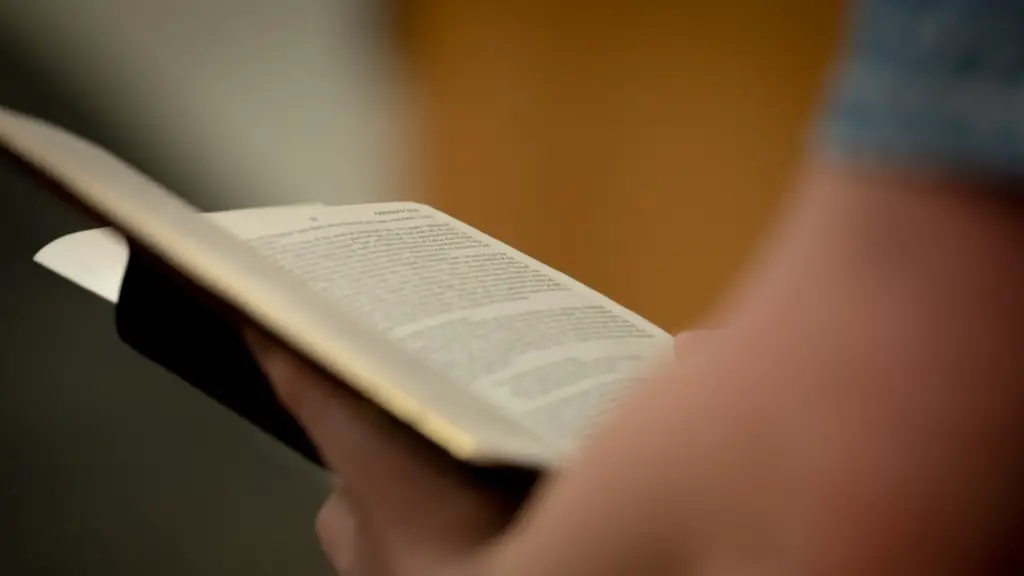When considering what to do with the body of a loved one, there is often disagreement and confusion between the secular and the spiritual. One of the most controversial topics is whether it is against the Bible to be cremated or not. It’s important to understand the biblical tradition and the theology surrounding cremation before making a decision.
Cremation is the process of reducing a human body to its basic elements through combustion and oxidation. It is an ancient form of body disposal and has been practiced for centuries in many cultures. In more recent times, it has become an increasingly popular choice among those who wish to honor the dead with a special memorial. Although the debate continues regarding the appropriateness of cremation from a biblical standpoint, many Christians believe it can be permissible if done with the proper respect and attitude.
The Bible does not explicitly say if it is allowed or not. Instead, it provides overarching principles for believers to follow: to honor and show respect for both the living and the dead. Therefore, when considering the appropriateness of cremation, it’s important to keep in mind the importance of honoring the loved one in whatever way is chosen. Some may argue that burying the body shows the highest level of respect, while others may prefer to keep the ashes and treat them as they would the body itself. In the end, personal preference should be taken into account.
The church’s stance on cremation has changed over time. In the early days of Christianity, cremation was disregarded as a pagan practice and therefore sharply discouraged. In recent decades, however, most denominations have eased their stance, allowing for the practice as long as it is not done for the purpose of disrespecting the deceased or their faith. That said, there are still some churches that forbid the practice.
Family Values
Family values can also impact the decision regarding cremation. In some cultures, the decision to cremate must be made in respect of family’s traditions and wishes. For instance, if the majority of family members prefer burial, it may be wise to opt for that choice instead of cremation in order to preserve the family’s beliefs and values.
Furthermore, those who wish to be cremated must consider the impact of their decision on their families. When the deceased was young, wanting to be cremated can not be their decision alone. If the deceased wishes to be cremated, it’s important to discuss it with family members so that everyone is comfortable with the choice.
Additionally, funerals are important for the grieving process, and cremation can alter the rituals that make up the funeral. Those who choose cremation must also consider potential hurt feelings among family members who would like to attend a traditional funeral service.
Financial Costs
Cremation is often chosen not only for religious reasons, but also for financial ones. Generally, cremation is less expensive than burial: a traditional funeral service with a body burial can cost more than double the amount of money that cremation does. It’s important to acknowledge, though, that there are other costs associated with cremation, such as memorials or urns.
For those who are particularly cost-conscious, home burials or natural burials are becoming more popular. Home burials can be a simple and affordable alternative, but they also involve additional paperwork and need to be done in places where home burials are allowed by law. Natural burials involve burying the body without embalming or a vault for the grave, and this is another cost-effective option.
Environmental Impact
Cremation is also becoming more popular due to its environmental benefits. Burial in the ground often involves the use of special coffin inserts, called concrete liners, that can take up to 500 years to decompose. Additionally, embalming is often used to preserve the body in order to buy time before burial, but it also involves injecting chemicals into the body that can harm the environment. Cremation, on the other hand, does not involve such chemicals and leaves a much smaller carbon footprint.
When it comes to cremation, there are many factors to consider. Ultimately, it is up to the individual to decide if they would like to be cremated or not. While there is no black and white answer to the question of whether it is against the Bible to be cremated, the important thing is to show respect and honor the deceased in whatever way is chosen.
Funeral Arrangements
Once the decision is made to cremate a body, there are special considerations and arrangements to be made. There are various types of cremation services available, from traditional services to direct cremation. Although the process of cremation takes place before the funeral, most people opt for some sort of memorial service prior to or after the cremation. When making arrangements for a cremation, it’s important to be aware of local laws and regulations, as well as any extra costs associated with the process.
Religious Beliefs
Religious beliefs can deeply influence a decision about cremation, and it is important to be aware of the views of each person’s specific faith tradition. Generally, however, most Christian denominations take a neutral stance on the issue as long as it is done with respect for the life and death of the deceased. In the end, it is up to each individual to decide whether to be cremated or not.
Celebrating Life
Cremation is also often chosen by people looking to celebrate the life of a loved one. Some families choose to hold a special memorial service near the ashes, while others prefer to scatter the ashes in a meaningful place. Whatever the decision may be, it’s important to remember that cremation can be a way to honor the life of the person who has passed away.
Although cremation can be an emotional and difficult decision to make, there is no right or wrong answer. It is simply a matter of understanding the different aspects of the process and making an informed decision that is respectful of the deceased as well as the religious and cultural beliefs of the family and friends.



